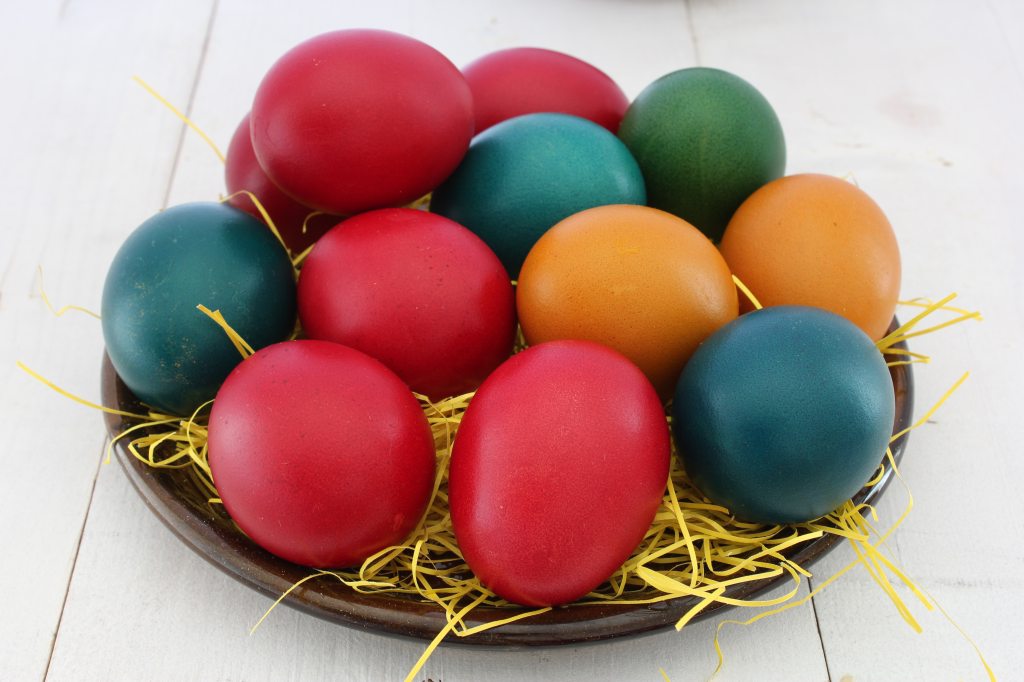
When is Easter Monday (Ostermontag)?
Easter Monday is a Christian holiday celebrated the day after Easter Sunday.
Easter Sunday (Ostersonntag) in Germany annually celebrates Jesus Christ’s resurrection after his crucifixion on Good Friday, according to the Christian Bible. People mark the day by attending special church services, giving gifts and sharing festive meals with family members.
While Easter Sunday is not a public holiday, it is categorized as a silent day (stiller Tag) in all or part of Germany. In some states, special restrictions may apply for certain types of activities, such as concerts or dance events. Depending on the state, businesses may follow normal or restricted opening hours, or they may be closed for the day.
In many countries in Europe and South America, this day is known as “Little Easter”. The Catholic Church calls it “Monday of the Angel”.
/ Dates of Easter Monday in Germany /
2020 Mon, Apr 13 Public Holiday

So, What is Easter?
Easter (also called Pascha) is generally accounted the most important holiday of the Christian year, observed in March or April each year to celebrate the Resurrection of Jesus from the dead after his death by crucifixion (see Good Friday), which Christians believe happened at about this time of year, almost two thousand years ago.

Why is it called Easter?
The name Easter is derived from ‘Ostara’ or ‘Eostre’, a pagan goddess of fertility, whose feast was celebrated on the Vernal Equinox. The word East is also derived from her names, as is Oestrogen, the female hormone. In Saxon culture, the Hare was sacred to Ostara and the modern tradition of the Easter Bunny is a distant echo of that.
However, In most languages other than English and German, the holiday’s name is derived from Pesach, the Hebrew name of Passover, a Jewish holiday to which the Christian Easter is intimately linked, as the Gospel of John states that the last supper took place during a specific part of the Passover traditions.

Easter Eggs
Modern Easter celebrations revolve around eggs. They may be painted, rolled down hills or eaten if they are of the chocolate variety. The Christian tradition of an egg is an aid to represent rebirth and resurrection – new life being born from the egg. It’s also been said that egg recalls the shape of the stone that rolled away on Easter Sunday form the tomb that held Jesus’ body.

This egg tradition is almost certainly a distillation of a much older pagan custom celebrating spring. The ancient Persians celebrated their new year at the time of the vernal equinox by painting eggs.
Its adoption into the Christian traditions would have been quite seamless, as eggs are banned during the period of Lent preceding Easter – in fact in many households the last eggs before Easter would have been used to make Pancakes on Pancake Tuesday.
What Do German People Do?
Many people attend a special church service on Easter Sunday. The church services generally have a celebratory mood and churches are decorated with a range of spring flowers. Some communities hold an Easter breakfast or lunch after the church service.
Many people prepare a festive breakfast, lunch or evening meal on Easter Sunday. Popular treats are:
- Fried, scrambled or boiled eggs.
- Roast lamb.
- Lamb stew.
- Rich loaves of sweet bread decorated with frosting and candy eggs.
- Cookies shaped like chicks, eggs or lambs.
- Butter in the shape of a lamb.
- Cakes baked in the shape of a hare or lamb.
- Various salads.
Many people give and receive Easter eggs and Easter hares on Easter Sunday. Children are often told that the Easter hare brings and hides Easter eggs. Many families, communities and businesses organize Easter egg hunts occur on Easter Sunday or Easter Monday. Many Easter eggs are made of chocolate or candy. Boiled eggs are painted or dyed with food coloring and decorative eggs are made of plastic, fabric or wood.

People in some areas of Germany, particularly in northern parts, light Easter fires late in the evening of Holy Saturday. Some people stay up all night. They keep the Easter fires burning all night until dawn on Easter Sunday.
Public Life
Public life on Easter Sunday in Germany is generally very similar to that on other Sundays. Post offices, banks, stores and other businesses are closed. However, some tourist stores may be open and stores at railway stations, airports and along highways are usually open.
There are some restrictions on selling alcohol, public performances and dancing. Public transport services usually run to the normal Sunday timetable but there may be some local variations.
*Reference
https://www.timeanddate.com/holidays/germany/easter
https://www.officeholidays.com/holidays/germany/easter-monday
*All image from Pexels
If you enjoyed Posting, Like and Share the Post and Subscribe My Blog!
